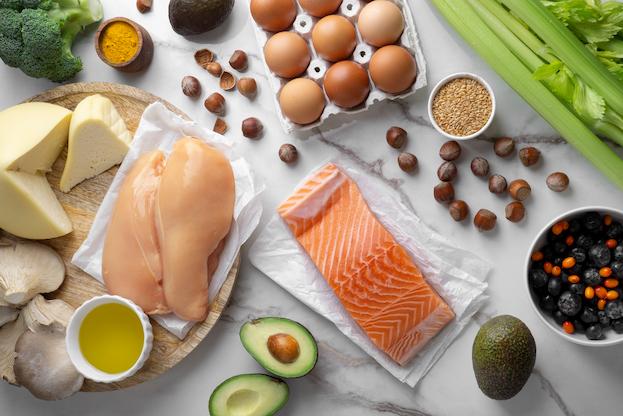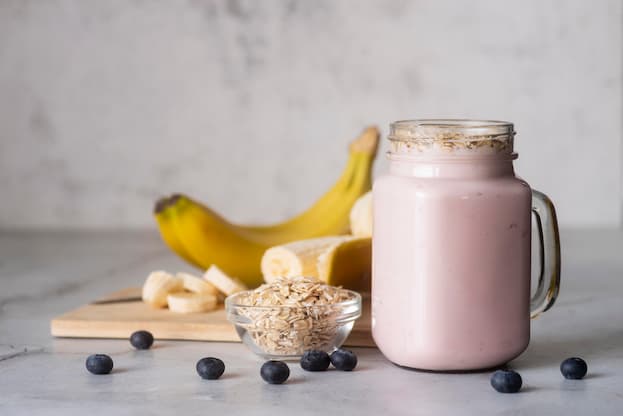Nutrition plays a vital role in the performance and success of competitive swimmers. To excel in this demanding sport, athletes must pay close attention to their dietary choices and fuel their bodies appropriately. Proper nutrition not only supports optimal energy levels but also aids in muscle recovery, enhances endurance, and improves overall performance in the water. In this article, we will explore the essential aspects of nutrition for serious competitive swimmers, providing valuable insights into what swimmers should eat and drink to maximize their potential in the pool.

Hydration
Fluid loss poses a significant challenge to the performance of swimmers. Intense training sessions, heated pools, exposure to hot temperatures, and high humidity can cause substantial fluid and sodium losses due to sweating. Hence, staying hydrated is crucial for swimmers to prevent dehydration and maintain optimal performance. Relying on thirst as an indicator of fluid loss is not sufficient because the sensation of thirst only kicks in after a considerable amount of fluid has already been lost. To combat this, swimmers should adopt a proper hydration plan involving drinking water regularly throughout the day and not just during training sessions or competitions. Moreover, during prolonged and intense swimming sessions, incorporating sports drinks or electrolyte solutions can help replenish the electrolytes lost through sweat and ensure consistent hydration levels.
Fuel For Success
As competitive swimmers engage in intense training sessions that demand significant energy expenditure, adequate calorie intake is crucial to meet the increased energy needs. Carbohydrates are the primary source of energy and should make up one half of a swimmer’s diet. Focus on consuming complex carbohydrates such as whole grains, fruits, vegetables, and legumes. These provide sustained energy release, helping to fuel training sessions and optimize performance in the pool. Optimal protein intake is important for muscle repair and growth. Go for lean sources of protein such as poultry, fish, eggs, dairy products, legumes, and tofu. Additionally, healthy fats, such as avocados, nuts, seeds, and olive oil provide essential fatty acids, which support hormone production and overall health. To maintain a well-balanced diet, include a variety of fruits, vegetables, and whole foods to ensure adequate intake of vitamins and minerals. These nutrients support overall health, immune function, and recovery. More importantly, each swimmer has unique nutritional needs based on goals, training demands, and dietary preferences. Whenever possible, seek help from a sports nutritionist or registered dietitian specializing in working with athletes for personalized guidance to optimize meal frequency and ensure proper nutrient intake based on individual requirements and goals.
When To Fuel?
Swimmers should aim to eat regular meals and snacks throughout the day to support their training and energy needs. Here’s a general guide to meal frequency:
Frequent, smaller meals over three main meals: This approach helps to satisfy appetite, maintain balanced blood sugar levels, and keep energy levels consistently high. We recommend this eating pattern over the traditional three large meals a day, as the latter may lead to lethargy during training sessions and competitions.
Pre-workout snack: Before a training session or competition, swimmers should have a small snack that is rich in carbohydrates to provide immediate energy. This snack can be consumed 1-2 hours before the activity and should be easily digestible. Examples include a banana, yogurt, or a granola bar. Additionally, incorporating energy gels into nutrition strategies can be beneficial for swimmers. Energy gels are formulated to provide a quick source of carbohydrates and are typically recommended to be consumed every 20-45 minutes during exercise.
Nutritious snacks: Swimmers should incorporate healthy snacks between meals to maintain energy levels and prevent excessive hunger. Opt for nutrient-dense options such as fruits, vegetables with hummus, nuts, yogurt, or whole-grain crackers with nut butter.
Hydration: Besides regular meals and snacks, swimmers should also focus on maintaining proper hydration throughout the day. Drink water regularly and ensure adequate fluid intake before, during, and after training sessions.
Recovery
The period immediately after a workout is crucial for replenishing energy stores and promoting muscle recovery. Within 30 minutes of finishing a training session, swimmers should consume a snack or meal that combines carbohydrates and protein. This aids in glycogen replenishment and muscle repair. Examples of post-workout snacks include a protein shake with fruit, Greek yogurt with honey, or a turkey wrap. It is also essential to maintain a balanced diet throughout the day, incorporating nutrient-dense foods to support overall recovery and ensure adequate intake of vitamins and minerals.

Conclusion
In conclusion, serious competitive swimmers must prioritize their nutrition as a key aspect of achieving optimal performance in the pool. The combination of proper hydration, maintaining a well-balanced diet with the right balance of carbohydrates, proteins, and fats, and strategically timing meals around training sessions are all critical for success. Seeking guidance from a sports nutritionist or registered dietitian can offer personalized advice to swimmers, enabling them to fine-tune their nutrition plans based on their specific needs and goals. With proper nutrition, swimmers can unlock their full potential, enhance their performance, and ultimately achieve their desired outcomes in the competitive swimming arena.
